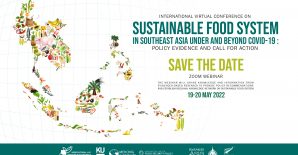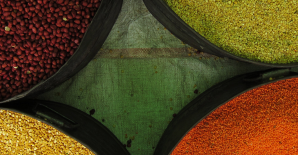News
EU launches 1.4 billion tenge program to fight COVID-19 in Kazakhstan and Central Asia
The European Union has launched the EUR 3 million Central Asia COVID-19 Crisis Response (CACCR) package, which seeks to support COVID-19 mitigation efforts and bolster health systems in the region, with a focus on Kazakhstan. The programme will be implemented by the World Health Organization in three stages: the first will address the immediate needs, the second will focus on recovery and preparation for future waves, and the third will aim to boost long term resilience of health systems. Please visit the link for specifics. - European Union News
“Every Family – Entrepreneur” program to receive additional $98 million
The Government of Uzbekistan will be providing $98 million of extra financing for the “Every Family - Entrepreneur” program, which will be reallocated from the Reconstruction and Development Fund. The funds will provide a source of income for families whose social situation and living conditions have deteriorated due to the pandemic. A further $2 million will be allocated to microfinance and non-profit organizations to support projects that will allow young people and women to engage in small business entrepreneurship. - kun.uz
More than 41 percent of households in Tajikistan report reducing their consumption of food
COVID-19 has hit Tajikistan particularly hard. The Listening to Tajikistan survey provides detailed insight into the exact nature of the pandemic’s effects in the country. In May, 41% of respondents reported reduced food consumption (versus 24% in May 2019), and there were increases in the share of people going hungry, reducing dietary diversity, and expressing concern over their ability to obtain enough food. Remittance income has also decreased significantly, even as 35% of households report at least one member currently residing abroad. Further, the percentage of households reporting that they have no savings has risen from 29% in January to 41% in May. - Asia-Plus
Uzbekistan will use water from Tajik reservoir to irrigate three regions
Due to current water shortages, Uzbekistan will use water from Tajikistan’s Bahri Tochik reservoir to irrigate agricultural lands along the Syrdarya basin. The pumps required for this initiative will be delivered to Tajikistan, and the cost of repairing piping stations will be reimbursed from a fund that has already been set aside. This highlights the importance of regional cooperation as climate change alters the availability of resources in the future. - Ministry of Water Resources of the Republic of Uzbekistan
Two sugar plants in Uzbekistan suspend their activities
Uzbekistan’s two sugar plants are suspending operations due to a drop in the demand for their products; foreign partners recently stopped the supply of raw materials to the plants. In Uzbekistan, sugar is largely imported from Russia at a much lower price, making Uzbek firms unable to compete. According to a representative from one of the plants, a similar situation exists in Kazakhstan, even as that country seeks to reduce reliance on sugar imports. The two plants employ about 2 thousand people, some of whom may find employment in Russian factories. - kun.uz
Analysis & Related Information
COVID-19 Analyses: IFPRI Blogs
IFPRI is facilitating an ongoing blog series to discuss COVID-19 as it relates to food security and development at the global, regional, and country levels. Though some concern specific countries, the insights are applicable to others as the world collectively experiences the impacts of the pandemic. This week's blog post concerns how India's agrifood supply chains have reacted to the COVID-19 lockdown.
IFPRI Virtual Events
IFPRI has been hosting virtual events to discuss various issues related to food and agriculture policy. Videos like this will periodically be posted publicly after being streamed live, and will include presentations from researchers, discussion between researchers, and Q&A. While there will not be a new seminar this week, please visit the link to view past seminars. This week's seminars include country specific agricultural analyses for Egypt and Myanmar (July 21 and 22 respectively) and a virtual event discussing "The European Green Deal: The Force of the EU's Farm to Fork Strategy and Biodiversity Strategy to Build Healthy and Sustainable Food Systems". For registration information, please visit the pages for each webinar by following the initial link.
One region, one health: Preparing Central Asia for future pandemics
Central Asia is located at a crossroads of global value chains and relies heavily on labor migration, making the region uniquely vulnerable to zoonotic disease outbreaks. However, the region also has great potential to mitigate future diseases through the “One Health” approach. The author of this article argues that Central Asia can lead future outbreak responses through regional cooperation, specifically by maintaining interconnectedness between institutions, services, and laboratories. - World Bank Blogs
Free trade can prevent hunger caused by future shifts in climate patterns
Climate change is projected to decrease global crop yields, particularly in Sub-Saran Africa and South Asia, regions with areas that are especially vulnerable to undernourishment. An international team of researchers investigated how different trade policies may affect food security as a result of climate induced crop yield changes, and found that reducing trade barriers may be very effective in increasing resilience to climate change with respect to food accessibility. Main findings include that import tariffs are a major barrier to international trade and increase vulnerability to climate change, and that a global food strategy must include improvements to trade infrastructure. This research is particularly enlightening during a time when countries are leaning towards protectionist trade policies. The link to the full text of the paper can be found in the publications section of this news digest. - International Institute for Applied Systems Analysis
Publications & Reports
Characterization of the aquafeed sub-sector in Kyrgyz Republic: A value chain analysis
Islam, A.H., Hasan, M.R. 2020. Aquaculture, Vol. 524.
Global hunger and climate change adaptation through international trade
Janssens, C. et al. 2020. Nature Climate Change.
Fostering Rural Resilience : A Closer Look at China’s Agricultural Insurance Pilot - Learning from Experience : Insights from China’s Progress in Disaster Risk Management
Ye, T., Mu, Q. 2020. Working Paper No. 150904. Washington, D.C.: World Bank Group.
OECD-FAO Agricultural Outlook 2020-2029
OECD & FAO. 2020. OECD and FAO Publication. Rome, Italy.
Why do people perceive themselves as being downwardly or upwardly mobile?
Gugushvili, A. 2020. Acta Sociologica. Article
Useful Links & Commentaries on Research Methods, Data & Publications
Non est Disputandum de Generalizability? A Glimpse into The External Validity Trial
John List, 2020. Artefactual Field Experiments 00711.
Events & Announcements
Virtual Seminars on Applied Economics and Policy Analysis in Central Asia
IFPRI, Westminster International University in Tashkent, and the Lebniz Institute of Agricultural Development in Transition Economies (IAMO) will continue to host weekly seminars on topics related to applied economics and policy analysis in Central Asia. They will take place on Wednesdays, at 7:30am EST, 2:30pm Moscow, 4:30pm Dushanbe & Tashkent, 5:30pm Bishkek & Almaty. For subscribers, registration information will be sent on the Monday before each webinar. For more information and to subscribe, visit the link. This week's webinar will be hosted by Dr. Suresh Babu, researcher and previous coordinator of the Central Asia program at IFPRI . He will present "Agriculture’s contribution to Structural Transformation: Lessons for Central Asian countries". You can register directly through this link.
Virtual AFE Seminar Series
A virtual seminar series organized by John List of the University of Chicago Department of Economics and Robert Metcalfe of Boston University's School of Business is being hosted weekly on Zoom. Each seminar will include a research paper presentation and Q&A, starting at 12pm EST on Wednesdays. Follow the link to view the full schedule of presenters and to sign up for invitations to the live seminar. Presentations will also by uploaded to a YouTube playlist.
Online Agriculture and Resource Economics Seminar
Dr. Marc F. Bellemare and PhD candidate Jeff Bloem will be hosting a weekly (Wednesdays, 11am CST) online seminar to discuss various research topics related to agricultural economics, nutrition, and food security. For example, the next seminar on July 15 includes a presentation of the paper, "Digitization and Development: Property Rights and their Impact on Land and Labor Allocation" presented by Sabrin Beg from the University of Delaware. Follow the link for registration information and a schedule of upcoming seminars.
Development Policy and COVID-19: eSeminar Series
The World Bank's Development Research Group is hosting an online seminar series for discussions on development policy as it relates to COVID-19. The seminars are completely public, do not require an application or sign-up, and will continue for the foreseeable future.
If you would like us to add your colleagues to our mailing list, please direct them to the following link.
The articles included in this news digest have been generated from online sources. Any opinions stated herein are not representative of, or endorsed by, the International Food Policy Research Institute or its partners.



